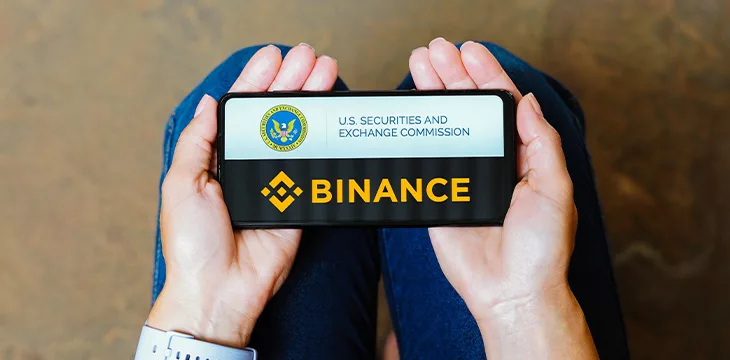|
Getting your Trinity Audio player ready...
|
Binance digital asset exchange has filed a protective order against the U.S. Securities and Exchange Commission (SEC), attempting to limit the regulator’s demands for information and witness deposition in the lead-up to their civil trial. The SEC is suing Binance on 13 charges, including inflating its trading volumes and diverting customer funds.
The protective order was filed with the U.S. District Court of Columbia by BAM Management and BAM Trading Services, the holding company of Binance.US, and seeks to limit the SEC to four depositions from BAM employees, and to prevent the depositions of BAM’s chief executive officer (CEO) and chief financial officer (CFO). In the filing, Binance claimed that the regulator’s requests for information were “overbroad” and “unduly burdensome.”
“The SEC’s position is unreasonable and part of a broader pattern of the SEC abusing the discovery provision of the Consent Order,” stated BAM, also describing the regulator’s discovery demands as an “inappropriate fishing expedition.”
In civil actions, the ‘discovery’ process refers to what parties use during pre-trial to gather information in preparation for the trial. A discovery demand might include document requests, the production of witness statements, lists of witnesses, and deposition requests.
In this case, the SEC demanded that BAM produce “all communications” concerning a number of relevant topics, including audits, from at least six employees and executives dating back to November 2022; and make at least six of its employees and officers available for depositions (including its CEO and CFO).
In contrast, BAM offered four witnesses for depositions and, in its Monday filing, suggested that what it had already provided was “more than sufficient to assess the custody and security of customer assets.”
The lawsuit
In June, the SEC sued Binance and CEO Changpeng Zhao, accusing them of engaging in “an extensive web of deception, conflicts of interest, lack of disclosure and calculated evasion of the law.”
The suit listed 13 charges, including claims that the company artificially inflated its trading volumes, diverted customer funds, failed to restrict U.S. customers from its platform, and misled investors about its market surveillance controls.
At the same time, the SEC filed an emergency application seeking to freeze all of Binance.US’ assets, citing concerns that the company could dissipate customer funds to evade any potential legal judgment.
The SEC claimed it was necessary “given the Defendants’ years of violative conduct, disregard of the laws of the United States, evasion of regulatory oversight, and open questions about various financial transfers and the custody and control of Customer Assets.”
Despite the damning charges against the company and its executives, BAM stated on Monday that “the SEC has still yet to identify any evidence suggesting that customer assets were misused or dissipated in any way.”
The SEC has yet to publicly respond to the digital currency exchange’s protection order, but it is highly likely the regulator will oppose the motion.
Follow CoinGeek’s Crypto Crime Cartel series, which delves into the stream of groups—from BitMEX to Binance, Bitcoin.com, Blockstream, ShapeShift, Coinbase, Ripple,
Ethereum, FTX and Tether—who have co-opted the digital asset revolution and turned the industry into a minefield for naïve (and even experienced) players in the market.

 07-06-2025
07-06-2025 





